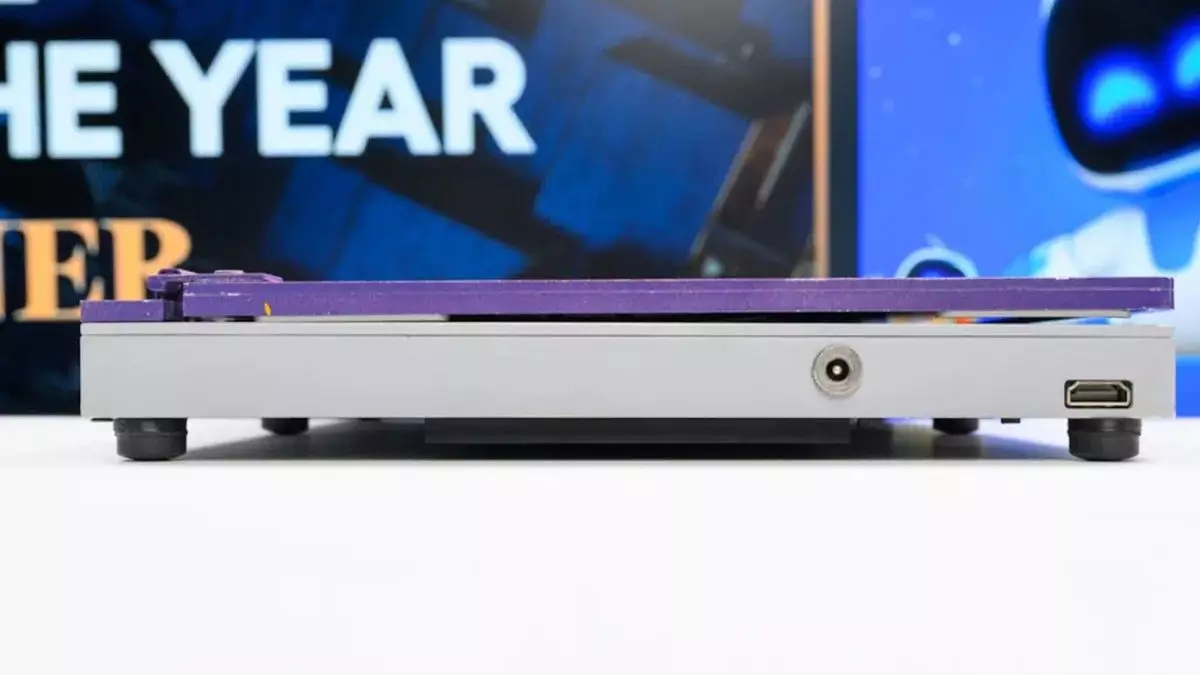Amid the prevailing trend of ultra-slim laptops and portable gaming devices, the unveiling of the BBook AI Original Edition by modder PenBar invites both admiration and incredulity. This 3D printed gaming laptop, ostensibly a modified version of the PlayStation 5, challenges the conventional notions of a gaming laptop by presenting itself as a hefty, cumbersome artifact. As a gaming laptop reviewer, it prompts critical reflection not just on its physical design, but its broader implications on the marketplace and consumer expectations.
The BBook AI Original Edition’s specifications scream impracticality. Measuring over 31mm in thickness and weighing approximately 9.5 pounds (or 4.3 kg), this device is not what anyone would consider portable. To put this into perspective, it’s heavier than some of the most robust gaming laptops in the current market, which are designed for high-performance gaming while remaining somewhat manageable for transport. The sheer size and weight of the BBook AI lead one to question its intended purpose. Is it meant to be a portable solution or merely an art piece masquerading as a laptop?
Such dimensions naturally lead to the examination of what features warrant such bulkiness. With a 17-inch 4K IPS screen and a full-sized keyboard, it seems to deliver on some fronts; however, it does come at a price. The display itself is limited to a 60 Hz refresh rate, which could detract from the performance during fast-paced gaming scenarios. The materials and components may convey a sense of nostalgia, but one can’t help but feel that the design choices were misaligned with the demands of modern gamers who prioritize clarity and responsiveness.
Aesthetically, the BBook AI has its charm—it taps into a retro design ethos that appeals to gamers of a certain vintage. Yet, beneath its artistic exterior lies a functional shortcoming: the absence of a battery. In a market that has come to expect a degree of versatility from laptops—specifically, the ability to game unplugged—the BBook AI fails to deliver. Essentially, it cannot technically be classified as a laptop in the traditional sense, as it must remain tethered to a power source to operate. This oversight raises questions about the intention behind its development. Is it a practical gaming solution or simply a creative project celebrating the art of gaming nostalgia?
Furthermore, the acoustic performance of the BBook AI deserves attention. Operating at noise levels comparable to a hairdryer at full power, it negates the potential for a serene gaming experience, particularly in quieter home environments. Gamers accustomed to more discreet machines may find the BBook AI disruptive rather than enticing.
With an estimated price tag of around $2,748, the BBook AI Original Edition exemplifies a niche market phenomenon—artisan mods commanding a premium for artistic and technical craftsmanship. However, a price point such as this conjures expectations of performance balanced with practicality. When juxtaposed against high-end gaming laptops that offer greater portability and significant power, the BBook AI appears overpriced, especially given its lack of fundamental features such as battery life.
This situation necessitates a broader conversation about value in the gaming industry. While the novelty of owning a uniquely modded creation can be alluring, consumers must weigh this against the need for tangible performance metrics and usability.
Ultimately, the BBook AI Original Edition stands as a testament to the vast creativity inherent in the gaming community—a passion project that enhances the conversation surrounding gaming hardware. However, practicality and user-centric design are essential for the success of any gaming laptop. While curiosity about the BBook AI exists, its fundamental flaws in portability, usability, and pricing can’t be overlooked. As the landscape of gaming laptops continues to evolve, a balance between innovative design and user experience will be paramount for both creators and consumers alike. The BBook AI serves not only as a captivating spectacle but also as a reminder of the responsibilities that come with engineering gaming technology that meets the real-world demands of its users.

